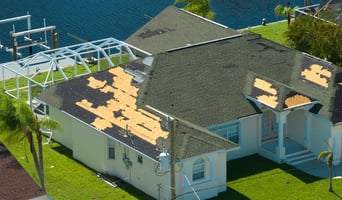When it comes to choosing insurance, most people focus on getting the lowest premium possible. In a...
Insuring Your Vacation Home: Addressing Key Considerations
Owning a vacation home in Florida is a dream come true, but insuring it comes with unique considerations that set it apart from your primary residence. A significant factor to consider is that your vacation home will likely be vacant for the majority of the year. This extended vacancy, coupled with the potential for rental income, impacts your insurance needs significantly.
The Impact of Vacancy on Vacation Home Insurance
Your primary residence is occupied throughout the year, which is a standard assumption for homeowners’ insurance. However, your vacation home, by definition, is not your primary residence. It may sit empty for long periods, waiting for your next getaway. This unique occupancy status sets the stage for distinct insurance requirements.
Extended vacancy poses certain risks that differ from those of your primary residence. For instance, unoccupied homes are more vulnerable to break-ins, vandalism, and even undetected maintenance issues that could escalate into significant problems. Insurance providers take these risks into account.
Vacation home insurance is designed to address the specific needs of such properties. It typically includes features like vacant property coverage, which provides protection during the periods when your vacation home sits unoccupied. This coverage is vital to safeguard against potential damage or theft during those extended intervals.
Rental Considerations for Vacation Homes
Many vacation homeowners choose to rent out their properties when they're not using them. While this can be a lucrative venture, it introduces additional insurance considerations. Rental income can impact your coverage needs and policy terms.
If you decide to rent out your vacation home, you'll likely need specialized rental property coverage. This coverage accounts for the presence of guests and renters, as well as the potential liability associated with injuries or accidents involving those who are not regular occupants of the property.
Your insurer needs to know about your rental activities. Failing to disclose this information can lead to policy gaps or denied claims. Be prepared to adjust your insurance policy to reflect your rental intentions, as it may necessitate changes in coverage, premiums, and deductibles.
When insuring your Florida vacation home, it's essential to acknowledge the unique factors that differentiate it from your primary residence. Vacancy for extended periods and the potential for rental income are two major considerations that impact insurance coverage. Tailoring your policy to address these specific needs is crucial to ensure that your vacation home is adequately protected, whether it sits empty for months or welcomes guests on a regular basis. Consult with an experienced insurance agent who specializes in vacation home coverage to navigate these unique insurance challenges and secure comprehensive protection for your secondary property.




